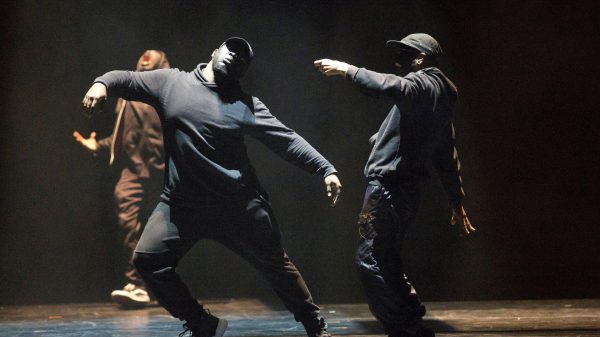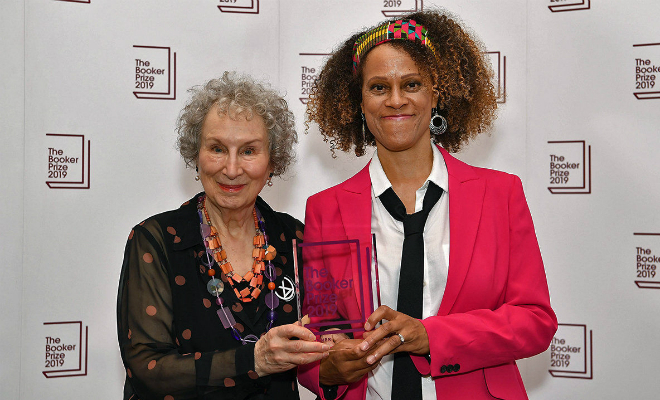Bernadine Evaristo and Margaret Atwood jointly won the Booker Prize in October – but some are disappointed in a Black woman having to share her much-deserved award
Being a stone’s throw away from 2020, it feels strange saying that there’s a Black woman as the ‘first’ to make some achievement. The later the year, the more astonishing it is to find that there’s still someone breaking new ground for Black women, due to exclusion in the past.
However, when it happens, it’s still a cause for celebration – and many were applauding the decision of the Booker Prize jury for giving their annual, extremely prestigious, award to Bernadine Evaristo for her novel Girl, Woman, Other. Born to an English mother and a Nigerian father in Eltham, south-east London, Evaristo has been writing experimental and magnetic pieces of fiction that relate to the lives of African people and those in the global diaspora for nearly two decades.
It’s an acknowledgement that’s been a long time coming. However, the conversation surrounding the win has been inseparable from the fact that she won alongside Canadian author Margaret Atwood, for The Testaments, the sequel to her incredibly popular 1985 novel, The Handmaid’s Tale.
‘Too often, moments of Black excellence have the spotlight split’
Though this is worthy of conversation because it breaks with convention – the Prize had only been split twice before in its 40-year history – some have also expressed their disappointment over the fact that the first Black woman and the first Black British person to win the Booker Prize isn’t able to savour the moment in the spotlight; it’s shared with an already-popular white author who had already won the same prize in 2000 (The Blind Assassin).
‘Sorry unimpressed by the split win! Bernie f***ing deserved it ON HER OWN! Not with White Women™ pulling ‘let’s not be divisive’ s**t’ [censored by Pride], reads a tweet from writer Dr Sunny Singh, in response to the announcement – one of a significant number who had concerns about the decision.
‘But would it have been better for her not to win at all?’ I hear the opposing response to this – and, to be clear, I don’t think that would’ve been the ideal solution either. Yet, I believe that a sense of bittersweetness is valid in this situation – because as happy as this moment is, it would be all the better if Evaristo was named by herself. It’s like when Moonlight won the Academy Award for Best Picture – but not before a bizarre accident brought the cast and crew of La La Land to the stage instead. Or in the case of American high school graduate Jasmine Shepard being forced to share the title of valedictorian – the highest graded student – with a white classmate, despite the fact that the classmate had a lower overall score than hers. (Shepard filed a federal lawsuit against the school district earlier this year.) Too often, moments of Black excellence have the spotlight split, and the focus becomes more about the spirit of sharing, rather than the achievement in and of itself.
We’ve got a long way to go, but even so, I have faith that the only way is up from here. There have been Black woman writers deserving of the Prize well before now, and now that Evaristo has been the first, here’s hoping it won’t take another 40 years before another Black woman has the chance to do the same – and on her own.

































































